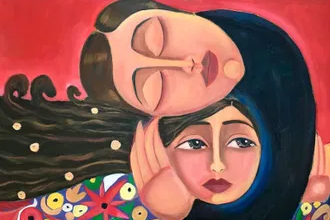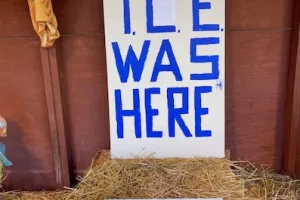Ian Linden: Priti Patel's outing to Rwanda

Professor Ian Linden
Why did Priti Patel, claiming her aim is to destroy the cross-channel traffickers' "business model", choose Rwanda for her recent £120 million Migration and Economic Development Partnership? And from what budget does the funding come?
Asylum seekers and migrants seeking a safe or better life in the UK are to be treated like toxic waste to be dumped in foreign lands, a striking illustration of the Johnson Cabinet's moral bankruptcy. But quite likely here is a Minister playing to the Tory gallery unconcerned that their announcement can't be implemented. Legal challenges are already being prepared. If this were just another half-baked initiative that will never happen, a Johnson specialty, there wouldn't be much more to say. But why Rwanda and what's in it for the Home Secretary?
The announcement provoked widespread and powerful reactions. "We pray that those who seek solutions do so with compassion, and with regard for the dignity which is innate to every human being. This week's policy announcement simply lacks these qualities" Cardinal Vincent Nichols responded.
The Archbishop of Canterbury described this "subcontracting" of responsibilities as "the opposite of the nature of God" - more theological but less clear - while the civil servants union called it 'inhumane'.
Matthew Rycroft CBE, Permanent Secretary in the Home Office with a distinguished diplomatic career behind him, wrote to Priti Patel that he was not in a position to conclude there was "a deterrent effect significant enough to make the policy value for money" and therefore needing a Ministerial directive to proceed. In short, the deal was immoral, unworkable, probably illegal, and would likely cost a fortune.
Protest was strong but the choice of Rwanda and its geopolitical implications have aroused negligible in-depth comment. They should have. There is much to be learnt from Rwanda's tragic history. My Church and Revolution in Rwanda (Manchester University Press 1977) examines the roots of the bitter political and ethnic conflict already happening 45 years ago. Following the 1994 genocide, I wrote about the failure of the international community, the complicity of the French, and the aftermath of the take-over by the Rwandan Patriotic Front (RPF). Rwanda is much more than the 'Switzerland of Africa'.
Rwanda today is economically a remarkable success story for which its President Paul Kagame is justly credited. A former military commander, in his mid-60s, trained at Fort Leavenworth, USA, he directed the RPF take-over after the genocide and today leads a tiny, poor, mountainous, densely populated country not much bigger than Wales whose population is 3.17 million. According to the World Bank, 60% of the 13 million Rwandans still survive in extreme poverty on $1.25 a day, but many of the usual poverty indicators are moving in the right direction.
The Kagame government has achieved impressive economic and social progress. 30% of Rwanda's budget is spent on health and education. There is almost universal primary education along with innovative health measures, though malaria remains prevalent. Life expectancy increased from 49 years to 67 between 2001-2017. Significant efforts have been made to overcome the ethnic divides that lay behind the genocide. In 2008 a law against gender based violence was passed and some 62% of parliamentarians are now women. Inequality in Rwanda as measured by the Gini coefficient (Sweden 0.3, South Africa 0.63) is 0.44. According to Transparency International, Rwanda is the least corrupt country on the African continent. An extraordinary example of national regeneration after the genocide.
Foreign aid accounts for from 30-40% of Rwanda's annual budget but, poor though the country remains, the government hopes to leap-frog into the cyber-age and make the country a regional ICT hub; 4,000 kilometres of fibre optics have been rolled out and 600,000 laptops distributed. The national university has a course on Artificial Intelligence. Rwanda - formerly Francophone now in the Commonwealth with an English language policy - has become a darling of British Development Aid. What's not to admire?
The maggot in the apple is Kagame's violation of individual human rights. Years ago, I was threatened by the head of Rwanda's official human rights organization for taking too much interest in human rights violations. Opposing Kagame is dangerous. Deutsche Welle's Global Media Forum (the German equivalent of the BBC World Service) reports 'enforced disappearances' (the official legal name used in a 2006 human rights UN International Convention) of journalists and opponents of the Rwandan government as well as mysterious deaths in South Africa and Mozambique of Rwandan exiles.
You have to be a very courageous to criticize the government. The country is ranked 155 out of 180 for Press Freedom and, placed between Angola at 122 and Zimbabwe at 133, is 128th out of 167 on the Economist Intelligence Unit's democracy index. In the 2017 elections, after 22 years in power as President, Paul Kagame allegedly received 99% of the votes achieving a constitutional change that would allow him to stay in power until 2034. Rwanda is now amongst the world's authoritarian one-party States.
Western governments making decisions about relations with Rwanda face a dilemma. Its work for social and economic rights inspires support and engagement. Its violations of individual rights, rights by which the West officially sets such store, call in question the fundamental opposition the West asserts between democratic governments and the growing number of authoritarian States around the world. The contemporary China-Russia alliance has made the West's defence of democracy an overriding geopolitical priority. The Cold War between Communist States and Western democracies is resumed with once again the (false) choice between the personal freedoms of the 1948 UN Declaration of Human Rights and the economic and social benefits of the 1966 UN International Covenant on Economic Social and Cultural Rights. Does achieving the social and economic rights laid out in the 1966 UN International Covenant really depend on suppression of political opposition? Hardly. It's a counter-factual argument but a democratic Rwanda could have done just as well.
The West sees itself championing democracy and a culture of democracy underpinned by respect for human rights, especially those violated by authoritarian regimes. So what is the UK doing planning to deport asylum seekers for 'processing', many of whom will be fleeing one authoritarian regime only to end up in another? This is no-one's idea of 'constructive engagement'.
Priti Patel in her choice of Rwanda is de facto prioritizing economic rights over individual rights, reversing the West's longstanding geopolitical position. Perhaps she simply doesn't notice that there might be a wider problem here in the message she is giving to the world in her migrants for money partnership.
Professor Ian Linden is Visiting Professor at St Mary's University, Strawberry Hill, London. A past director of the Catholic Institute for International Relations, he was awarded a CMG for his work for human rights in 2000. He has also been an adviser on Europe and Justice and Peace issues to the Department of International Affairs of the Catholic Bishops Conference of England and Wales. Ian chairs a new charity for After-school schooling in Beirut for Syrian refugees and Lebanese kids in danger of dropping out partnering with CARITAS Lebanon and work on board of Las Casas Institute in Oxford with Richard Finn OP. His latest book was Global Catholicism published by Hurst in 2009.
Visit his website here: www.ianlinden.com


















